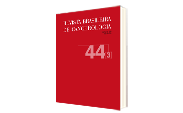The social support to assist mastectomized women in their need
DOI:
https://doi.org/10.32635/2176-9745.RBC.1998v44n3.2815Keywords:
Mastectomy, Social Support, Oncology NursingAbstract
Mastectomy is an aggressive surgical process that can lead to unfavorable physical and emotional repercussions to the life of women , and they need support to properly adjust themselve to their new Health condition. The purpose of this work is to identify the needs of social supportfor mastectomized women, classifying in emotional, material, informative and comparative support. Data was collected from 22 mastectomized women who attended the Ribeirão Preto Nursing School Rehabilitation Center through semi-structured interviews. A qualitative approach was closen because it allowed a better understanding of the needs of the enquired women. According to what women mentioned about support, we noticed that the women have been receiving positive support in the form of affection and understanding, and negative support in the form of indifference and scorn. As to material support, it was shown that they take overmost home making activities, and do not receive the expected help from their families, and that many a time are economically dependent on family members. As to informative support, the women were insecure and upset, for they had not received enough orientation in the Services they attended, for treatment follow-up . As to the reahabCenter, besides getting information, there were people to hear them out. From the depositions taken we noticed that women compare their cases with similar ones that assailed relatives or friends. It was concluded that the mastectomized woman needs several sources of support to recover from the illness and to adapt herself to life after surgery.
Downloads
References
Feather, B.L.; Wainstock, J.M. - Perceptions of post mastectomy patients: The relationships between social support and network providers. Cancer nursing, 12(5): 293-300, 1989. DOI: https://doi.org/10.1097/00002820-198910000-00005
Wolff, L.R. - Rede de Suporte Social da Mulher Mastectomizada. Ribeirão Preto, 1996. Dissertação de Mestrado - Escola de Enfermagem de Ribeirão Preto, Universidade de São Paulo.
Silva, R.M. - O conviver com a mastectomia. Ribeirão Preto, 1994. Tese (Doutorado em Enfermagem) - Escola de Enfermagem de Ribeirão Preto, Universidade de São Paulo.
Woods, Nancy Fugate. Measuring the phenomenon. In: Catanzaro, W. Nursing Research: Theory and Practice. St. Louis, Missouri: Mosby, 1988.
Mamede, M.V.- Reabilitação de mastectomizadas: um novo enfoque assistencial. Ribeirão Preto, 1991. Tese (Livre-Docência) - Escola de Enfermagem de Ribeirão Preto, Universidade de São Paulo.
Simonton,S.M. - A família e a cura: O método Simonton para famílias que enfrentam uma doença. São Paulo: Summus, 1990.
Leshan, L. - O câncer como ponto de mutação. São Paulo: Summus, 1992.
Abeche, A.M.; Blochtein, C.A. - Mastectomia: abordagem do papel do cônjuge. R. AMRIGS, 29(2): 126-129, jun. 1985.
Carvalho,Z.M.F.-Orientação de Enfermagem - Fator importante no ajustamento das mulheres mastectomizadas. Rev Bras de Enfermagem. Brasília, 37(314): 157-164, jul/dez 1984. DOI: https://doi.org/10.1590/S0034-71671984000400002
Mira Y Lopes, E. - Quatro gigantes da alma - o medo - a ira - o amor - o dever. 13“ ed. Rio de Janeiro: José Olímpio, 1988.
Fialho, A.V.M.; Silva,R.M.- Mastectomia e suas repercussões. Rev Bras de Enfermagem, Brasflia, 46(3/4): 266-270, jul/dez 1993. DOI: https://doi.org/10.1590/S0034-71671993000300009
Boltanski, L. - As classes e o corpo. Rio de Janeiro: Graal, 1979.
Wilson, B. - Un enfoque de estilo de vida para la práctica de la enfermería. In: Hall. J.E.; Weaver, B.R Enfermeríaen Salud Comunitária: Un enfoque de sistemas, 2ª ed: States, 1988.
Yates, B .C. - The Relationships Among Social Support and Short and longTerm Recoveiy Outcomes in Men with Coronary Heart Disease. Research in Nursing & Health, 18:193-203, 1995. DOI: https://doi.org/10.1002/nur.4770180303
Raatikainen, R. - Social support participation and collaboration of relatives in domiciliary care. Int JNurs Stud, 28(4): 377-386, 1991. DOI: https://doi.org/10.1016/0020-7489(91)90063-9










